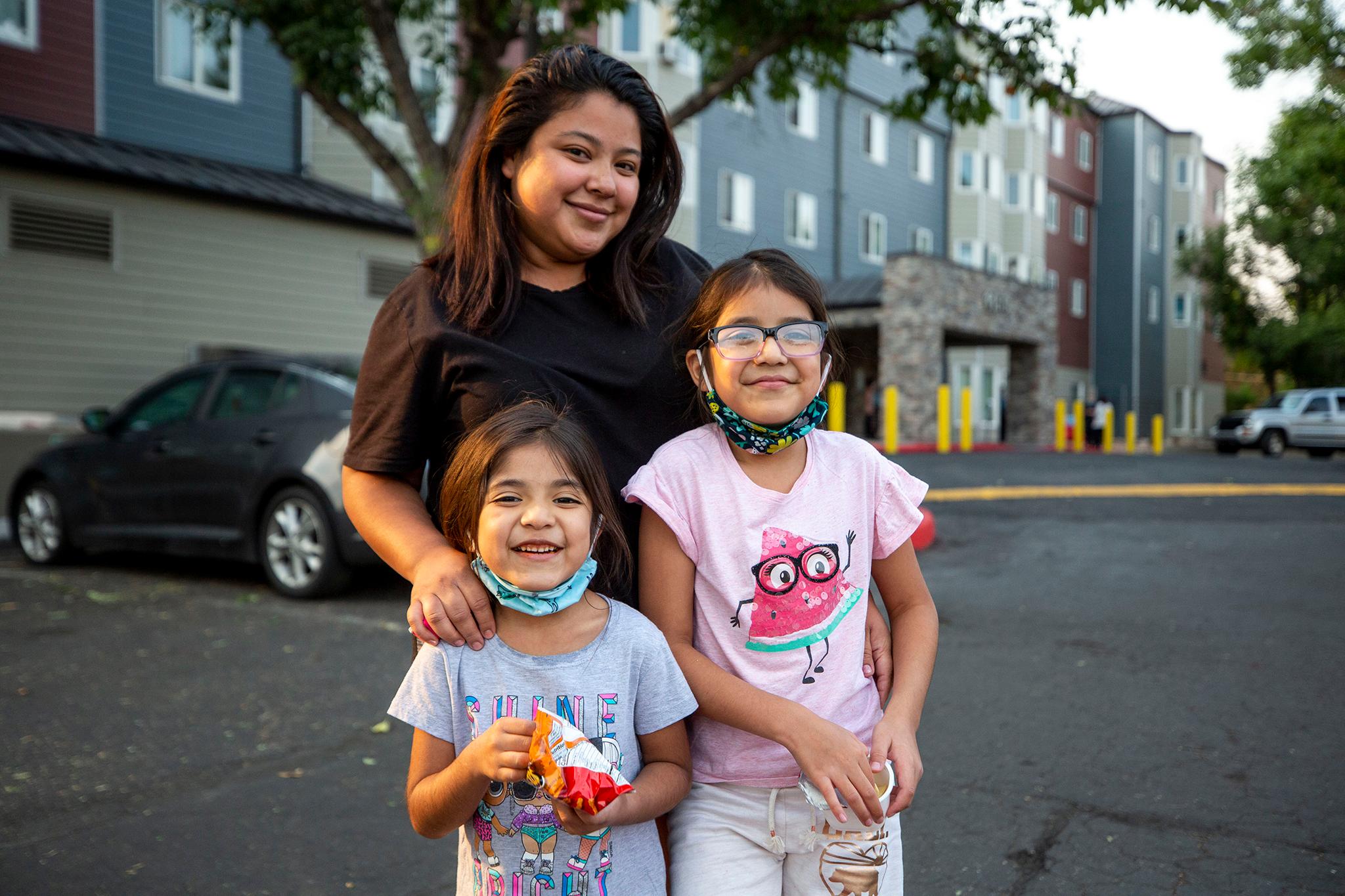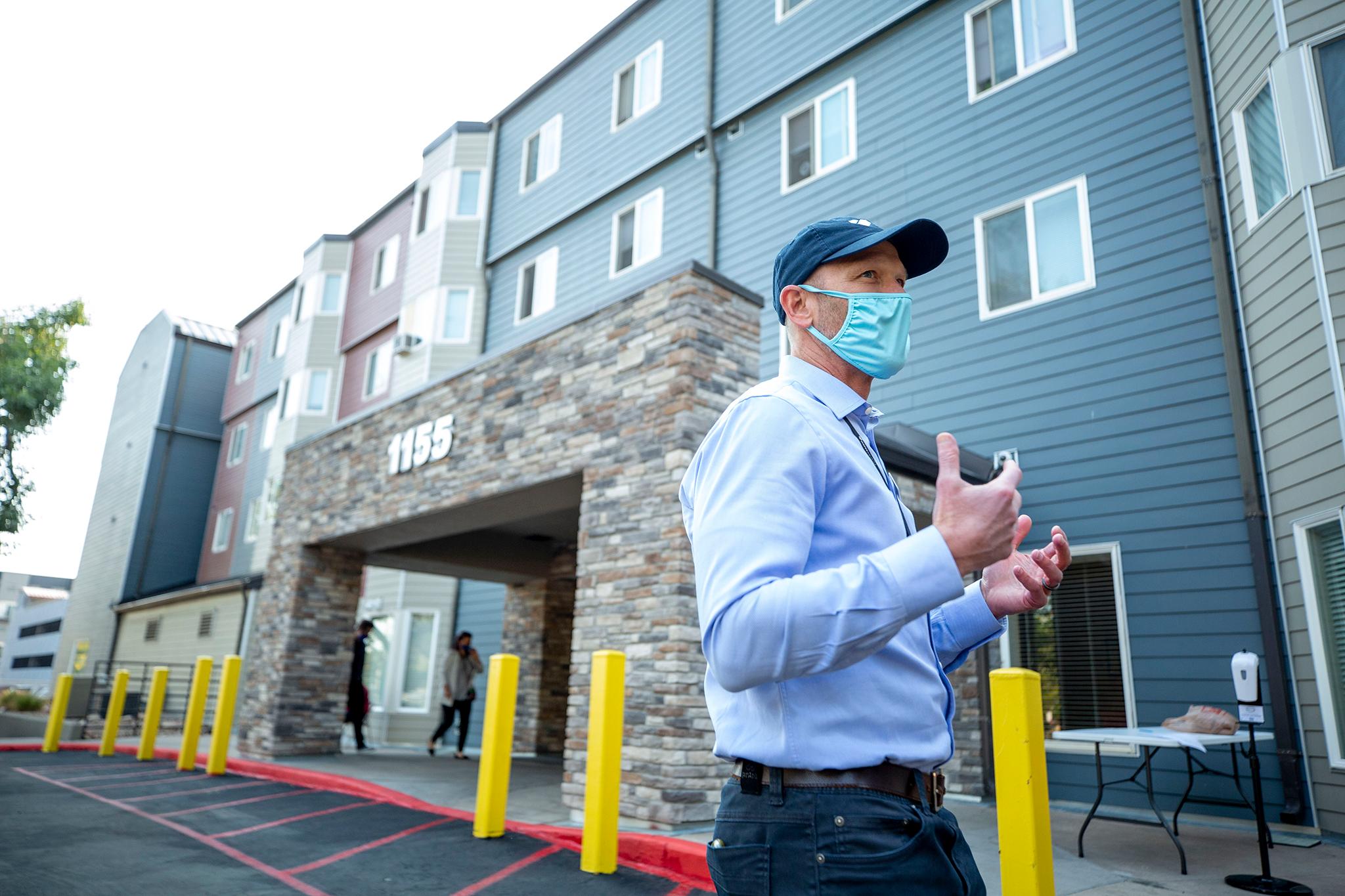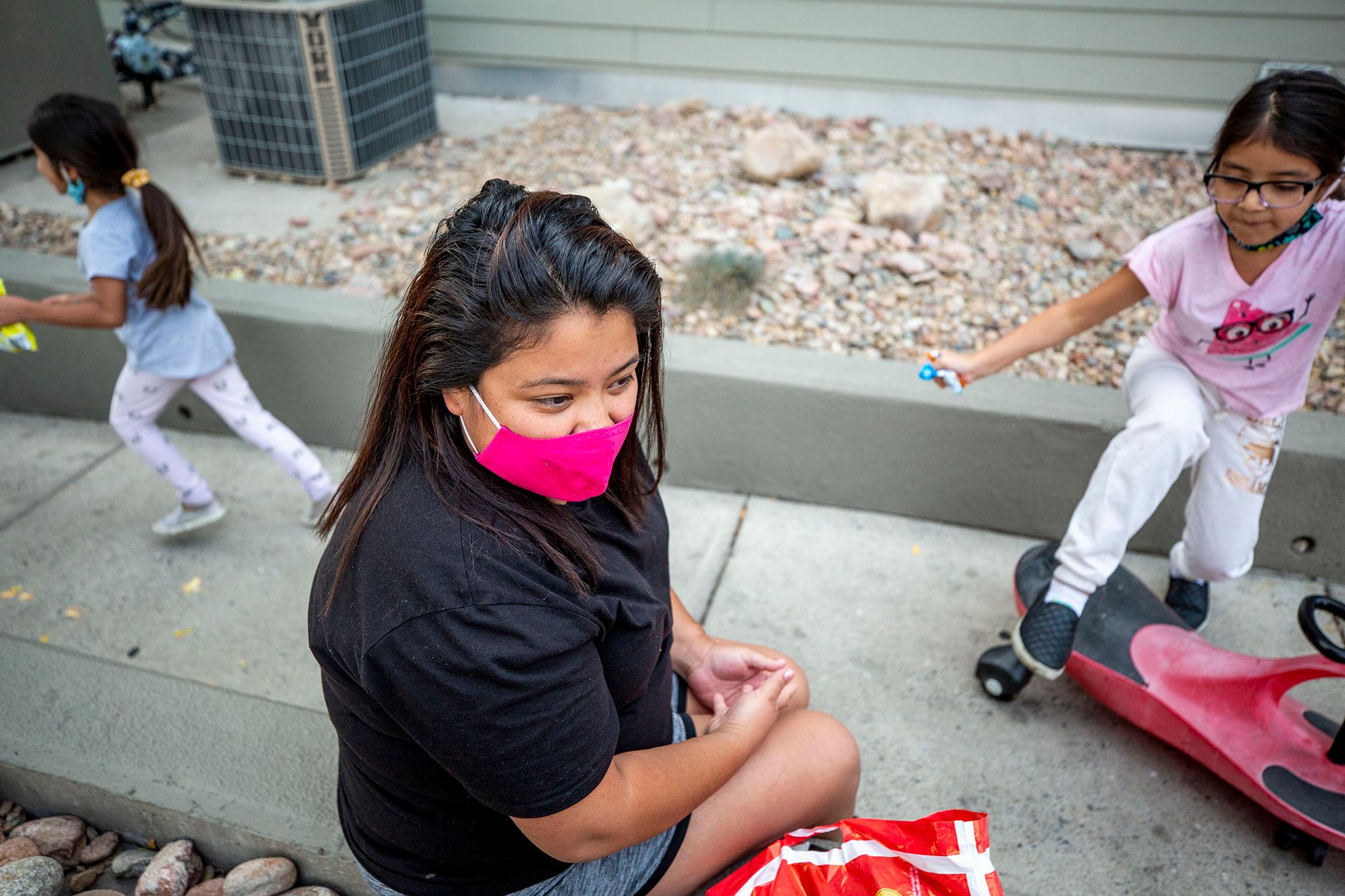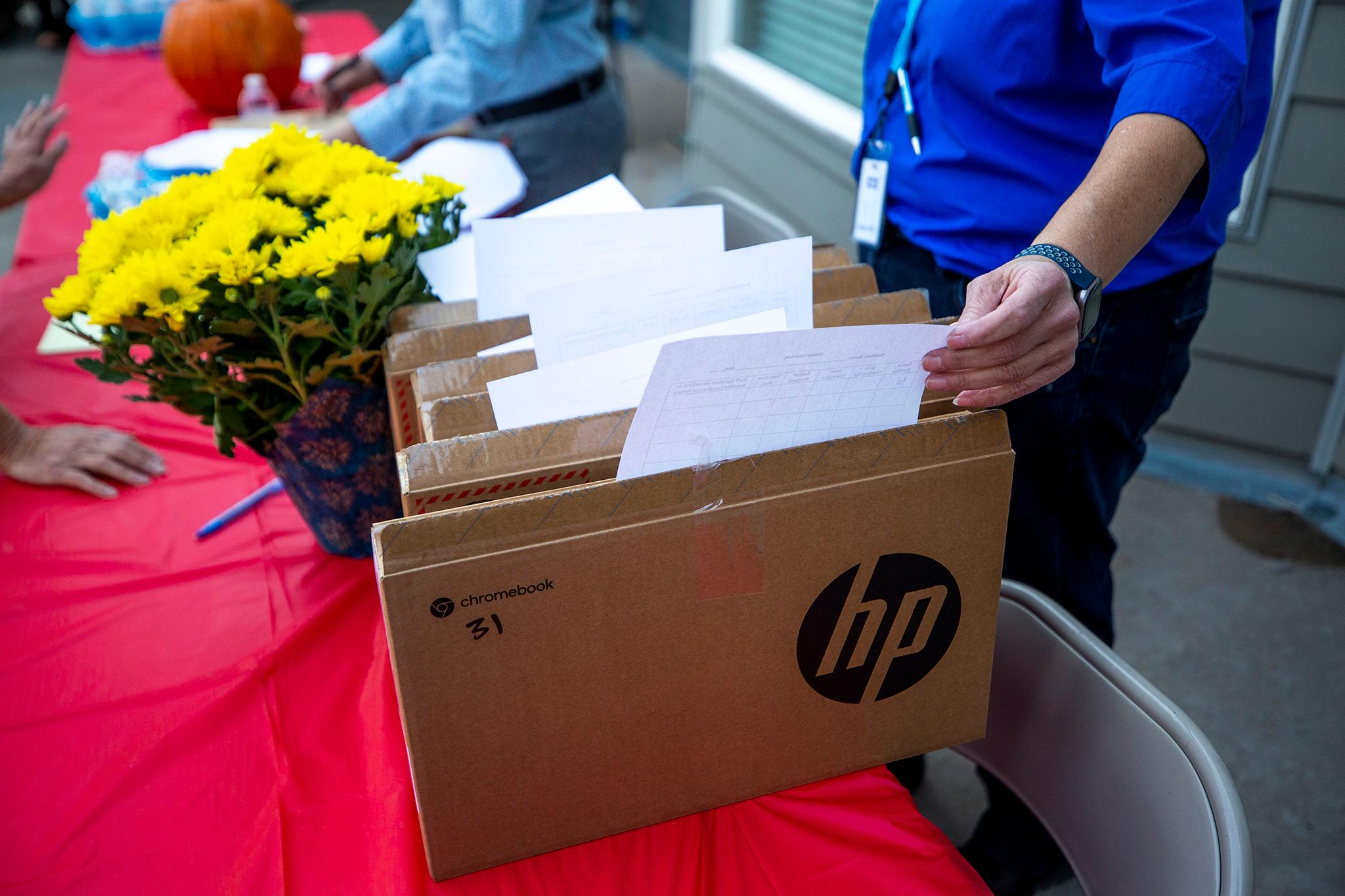Noemi Ruano has worked at places that offered training for better paying jobs. But she had been unable to seize those opportunities because she didn't have reliable access to internet.
Then her landlord -- Denver-based Mercy Housing, one of the nation's largest nonprofit developers and managers of affordable housing -- brought free internet to Ruano and her neighbors. As soon as the service was switched on, Ruano started logging in from her Sun Valley apartment to evening classes provided by the preschool where she's a teacher's assistant. She hopes to one day be a full-fledged teacher.
"I want to have my own classroom," Ruano said.
Ruano, a single mother, said when she had considered taking classes before, she thought, "Who's going to take care of your kids?" Now her young daughters can occupy themselves elsewhere in their apartment while she's in her virtual class.
"I'm getting my work done and don't have to leave my home," she said.
She's using a laptop on loan from Mercy. Ruano had once checked pawn shops hoping to find a computer she could afford.
"You can never save because you have so many bills," she said. "As a single parent, it's hard."

Before Mercy connected her, Ruano had gone to the nearby Rodolfo "Corky" Gonzales Branch Library to use a computer and the internet.
"When you go to the library with kids, you just don't have the same focus as when you're home," Ruano said.
Once the pandemic came, libraries closed their doors because they could not ensure the social distancing necessary to stop the spread of the coronavirus.
Higher income earners have not only been more likely to have jobs they can do from the safety of their homes during pandemic shutdowns, but they also are more likely to have the computers and broadband service to do them. Indeed, COVID-19 has exacerbated the digital divide -- along with many other divides separating the haves from have-nots, many of the latter from minority and immigrant communities who get by on low wages.
Mercy is not the only income-restricted housing provider trying to fill the gap.
Dontae Latson is president and chief executive officer of Rocky Mountain Communities, which has eight affordable housing complexes in Colorado, most in the Denver area. Among them is Arroyo Village. The complex of 95 one-, two- and three-bedroom apartments for households that earn no more than 50 percent of the area median income ($50,000 for a family of four) is located on a West Colfax block alongside a shelter and 35 units of permanent supportive housing managed by The Delores Project.
"I don't think we've seen the worst of COVID-19 yet. And if we are seeing it, the folks that we're serving, their recovery is going to be a lot longer than for the rest of us," Latson said. "Our folks are falling behind simply because they can't afford to keep up."
Before coming to Rocky Mountain Communities last year, Latson was a hospital administrator in a part of North Carolina where he helped introduce tele-psychiatry. Latson, who is Black, said that as a child he watched relatives "wither away" without mental and other health services.
"It's personal for me," he said, adding that lack of access to the internet can mean lack of access to support that can save lives, as well as to jobs and education.
When the pandemic hit, Latson had initially been concerned about school children being unable to take part in remote learning. He has been impressed by districts' efforts to get computers and wifi hotspots to the homes of students. But what of families without school-age children?
Latson is using part of a $15,000 grant that Rocky Mountain Communities recently received from NeighborWorks America, a national affordable housing and community development nonprofit, to determine what digital devices and services are already being used at Rocky Mountain's Garden Court complex in East Colfax. Latson will be hiring translators to help him do that -- at least 10 languages, from Amharic to Tixli, are spoken among Garden Court's 700 or so residents, 70 percent of whom are immigrants and refugees from African countries.
Rocky Mountain Communities will seek a vendor to provide service for the entire complex. Latson hopes for a deal that will bring connectivity within reach of more Garden Court households and plans to subsidize those who still can't afford to be connected.
Like Rocky Mountain Communities, Mercy Housing is turning to partners for help.
Gunnar Tande, a Mercy senior vice president in charge of technology, said EPIC Insurance Brokers and Consultants provided $40,000 for the internet access project being piloted at Mercy's Decatur Place Apartments, where teacher-to-be Ruano lives. The grant from EPIC, a longtime philanthropic supporter of Mercy, allowed the nonprofit to install a dedicated internet connection serving all 106 apartments at Decatur Place with wireless access points on each floor. The system was switched on last month. EPIC also supplied 106 Chromebooks worth a total of about $27,000.

Tande said it would cost $40,000 a year to provide internet to Decatur Place using hot spots. Now that the dedicated system has been installed, internet for the building will cost about $5,000 a year. EPIC is paying the internet costs for the first two years. Tande said that at $5,000 a year, Mercy should be able to absorb the costs after the first two years.
Mercy hopes to provide similar service in its 353 properties across the United States. The Decatur Place pilot will allow Mercy to work out kinks, including determining where to locate the wireless access points to best serve residents.
Early in the pandemic, Mercy conducted a nationwide needs assessment and found families struggling to keep children connected to schools and older residents losing touch with family and friends. With support from the American Association of Retired Persons Foundation, T-Mobile and the office supply company Staples, Mercy was able to provide laptops, tablets and hot spots to about 2,000 residents of its buildings across the country. The Decatur Place pilot is a step toward a longer-term solution.
"To really move toward digital inclusion is going to take a multi-pronged approach," Tande said.

He said Mercy has joined with other large nonprofit affordable housing providers to lobby the U.S. Department of Housing and Urban Development to treat the internet as a basic utility, which could mean more federal dollars would be available to keep tenants connected.
Nonprofits such as Mercy and Rocky Mountain Communities provide not only housing, but support for people who have experienced homelessness, have little education and who are unemployed or unstably employed. Keeping low-income families housed can mean offering job training or English classes, programs that were in-person before the pandemic.
"With the Chromebooks, we are able to offer the classes virtually," said Brianna Francis, a case manager at Decatur Place.
Ruano said she is working toward one day buying her own home. She said, "I tell myself once I leave here ... I'm going to be thankful for being here and for their supporting me."













